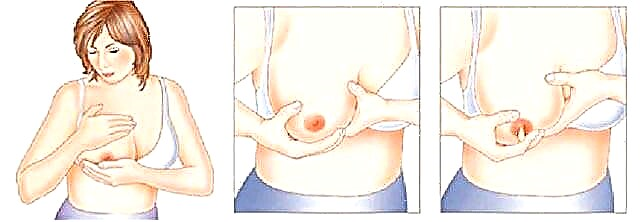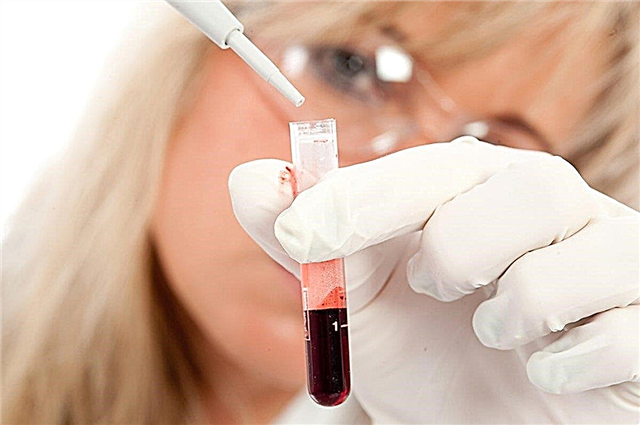Potatoes are rich in a huge amount of vitamins, minerals and nutrients that are so important for the well-being and proper development of a young child. But this vegetable is not recommended by pediatricians as an early feeding. Young parents should know when the child can already introduce potatoes into complementary foods, and how to do it correctly. It is very important to follow the feeding rules, since the product should only benefit a small body. Otherwise, unpleasant consequences are possible.

Child eating mashed potatoes
The benefits of potatoes for child nutrition
The benefits of a vegetable for a small child is that it:
- Favorably affects the growth and strengthening of muscle fibers;
- Improves the psycho-emotional development of the child;
- Due to the large amount of fiber, it promotes proper digestion and cleanses the intestines from toxins;
- Reduces the amount of harmful cholesterol in the liver and blood serum;
- Normalizes the work of the heart muscle and nervous system;
- Regulates metabolic processes in the body;
- Normalizes the water-salt balance in the body;
- Restores acid-base balance;
- Helps to heal various kidney problems;
- Improves the work of all organs of the digestive tract;
- Promotes tissue healing in case of burns;
- It has a positive effect on the work of the central nervous system and the brain;
- Fills the growing body with the necessary energy.

Potato tubers
Composition and nutritional value
100 grams of boiled potatoes contain:
- 2 g of proteins;
- 20 g of carbohydrates;
- 0.2 g of fat;
- 1.8 g of fiber;
- 76 g of water.
Also, potatoes are rich in nutrients such as:
- Retinol;
- Ascorbic acid (vitamin C);
- Tocopherol (vitamin E);
- Thiamin (vitamin B1);
- Riboflavin (vitamin B2);
- Nicotinic acid (vitamin B3);
- Pantothenic Acid (Vitamin B5);
- Pyridoxine (vitamin B6);
- Folic acid (vitamin B9).
In addition, potatoes contain minerals such as:
- Potassium;
- Phosphorus;
- Chlorine;
- Sulfur;
- Magnesium;
- Calcium;
- Sodium;
- Zinc;
- Manganese;
- Copper;
- Iron;
- Boron;
- Molybdenum.
In what form can you give
In addition to the question of when it is possible to introduce potatoes into complementary foods, many parents are also concerned about another point: in what form it is better to give them to the baby. Up to 9-10 months of a child's life, potatoes in complementary foods can only be given in the form of mashed potatoes, chopped to a homogeneous consistency, without any lumps.
At the eleventh month, the baby can be offered boiled potatoes, cut into small pieces, so it will be convenient for the baby to take it with his fingers and put it in his mouth. Potatoes should be chosen crumbly and well-cooked so that the baby can hold a piece in his mouth for a long time, and when he swallows it, he cannot choke.
You can also give the crumbs boiled, baked and steamed potatoes. All other cooking options up to two to three years of age are contraindicated for the baby.
Up to a year old, potatoes in complementary foods are best given in the form of liquid mashed potatoes and soup. After a year, you can make cutlets out of potatoes and steam them. In addition, it will be useful to add stew, borsch, and casserole to the baby's diet. Baking is the best way to cook potatoes. During it, he reveals his natural taste, retains most of the nutrients.

Puree for babies
At what age can you enter
When to introduce potatoes into complementary foods? The vegetable can be introduced into the baby's diet no earlier than he turns 6-8 months. If the newborn is artificially fed, then complementary foods begin at five months. Potatoes contain a lot of starch, the child's digestive organs in the first six months of life are not yet ready for such a "heavy" product. If potatoes are introduced too early into the complementary foods of a newborn girl, gastrointestinal upset can be provoked: colic may increase, constipation and gas may appear.
Vegetables should be introduced into the diet not as an independent dish, but combined with other vegetable purees from various types of cabbage and zucchini. It is important to consider that the total volume of potatoes in vegetable puree should not be more than 50% of the entire serving of the dish.
Baby puree can be boiled in water or in water with milk in a 1: 1 ratio. If the baby, which already has teeth, is given potatoes not in the form of mashed potatoes, but in the form of tiny pieces, then chewing reflexes will begin to develop faster.
When you can already give potatoes to babies in complementary foods with the addition of boiled meat and other vegetables, it worries many parents. Here you should wait up to 1.5-2 years, then offer the baby more "complex" recipes. At this age, you can give your baby soup, stew, casserole. Fried potatoes are introduced into the baby's diet only when he is 2.5-3 years old.
Additional Information. The well-known pediatrician, author of many books on the health and nutrition of children, Yevgeny Komarovsky, when asked about the timing of the introduction of potatoes into complementary foods, replies that the optimal age is 8 months. In this case, the baby should already have grown several teeth. At first, the menu should include a decoction of potatoes, only then - mashed potatoes and soups with the addition of other vegetables.

Feeding a six month old baby with mashed potatoes
How to cook properly
Parents should make the most effort during the preparation of mashed potatoes when the baby first meets the potatoes. It is very important to understand what should be done so that the baby can appreciate both the taste and the benefits of the vegetable without negative consequences.
How much to soak
Until about twelve months of age, the baby should only be fed well-soaked potatoes. The vegetable should only be soaked in cold water. The first time for soaking will take about 10-12 hours. To completely remove starch, you need to change the water at least two or three times. Then the time can be gradually reduced and by the year the potatoes can be soaked for no more than 1-2 hours. After one year old, potatoes can be cooked for the baby, as well as for all family members.
Potatoes must be soaked in water in order to release all the starch, which is poorly absorbed by a small organism. Moreover, it increases insulin levels. Also, potatoes, as a tuberous vegetable, are very fond of collecting a large amount of nitrates, pesticides, so it should be soaked for at least a few hours.

Soaking peeled potatoes
How to cook
In the first complementary feeding, mashed potatoes for babies are best served in the form of a one-component dish. You can cook potatoes with any of three options that you like best: boil in the usual way, steam or bake. Baked potatoes in their skins will retain more nutrients, such as potassium, which is most contained in the skins. Next, the potatoes should be peeled, chopped with a strainer or crushed with a crush. You can add breast milk or formula to the finished puree to give it a smooth, semi-liquid consistency without lumps. Salting the finished dish is not worth it.
Note! It is undesirable to use a blender during cooking, as the puree will acquire a too sticky consistency, it will be difficult to digest.
At first, the potatoes should still be peeled. As soon as the crumb gets acquainted with the vegetable, it can be boiled or baked in the oven without peeling off the skin, the taste of the product will be different, so it is important to introduce the child to all possible cooking options. After three years, you can treat your baby to potatoes baked over a fire, only you need to clean it well of ash.
Recipes for babies from eight months
Mashed potatoes
Ingredients:
- 1-2 medium sized potatoes;
- 100 ml of milk (breast and cow);
- 2 g butter.
Preparation:
- The potatoes are peeled, cut into pieces and boiled.
- The milk is boiled in a saucepan or ladle.
- First add butter, then milk to a pan with boiled potatoes to get the desired consistency.
- Beat the potatoes with a hand blender.
There is a simple recipe for mashed potatoes for babies that every mom can cook.
Potato casserole
Ingredients:
- 200 g of potatoes;
- 5 g butter;
- 50 ml of milk;
- egg.
Preparation:
- Boil potatoes in their skins.
- Peel and grind with a blender.
- Add butter, egg and milk to the finished puree.
- Stir the mixture well and pour onto a greased baking sheet.
- Bake the dish at 200 degrees for about 30 minutes.
A potato casserole for a one-year-old child is a very healthy dish that will suit your kid's taste.

Potato boiling process
What can be combined with
After the baby is 8-9 months old, to add flavor, you can season the puree with 2-3 drops of vegetable oil. When the baby is already 10 months old, you can add 1.5-2 g of butter to the puree.
After the child gets used to the potatoes, you can add other vegetables to it, making the baby's menu more interesting. From 7 months old, potatoes can be mixed with broccoli or zucchini. From eight months - add beets and carrots. At nine months, you can safely take cauliflower. At ten - cook soup with vegetables and chicken fillet.
After a year, the child can be given potato pancakes, cutlets (baked in the oven, not fried in a pan), potato pancakes, baked potatoes, salads, casserole or stew with potatoes. From 1.5 years old, you can pamper your baby with chicken baked with potatoes in the oven (without adding oil).
What else is potatoes combined with while breastfeeding:
- with different types of cabbage;
- with zucchini;
- with pumpkin.
A little later, it is recommended to add carrots and onions, season with mashed potatoes with herbs, garlic, supplement with meat, poultry, fish. When adding a chicken egg, boiled yolk can also be added to the dish. But at the very beginning of the introduction of potatoes into complementary foods, this should not be done. Otherwise, if an allergic reaction occurs, it will be difficult to track what the reaction was to.

Potatoes can be combined with various vegetables
Complementary feeding rates
Parents should adhere to certain norms for the introduction of potatoes into complementary foods.
How often to give
It is undesirable to give mashed potatoes to babies every day. Due to the presence of starch, the dish will be difficult for the children's digestive system. It is enough to feed the baby with this product 2-3 times a week.
It is better to feed the baby with potatoes in the morning, until 2 pm. This will prevent the occurrence of possible consequences in the form of an allergic reaction or gas formation, which may appear after eating a fruit as heavy as potatoes.
Number
It is recommended to start complementary foods with 1 teaspoon and gradually bring up to a portion of 150 g. By the year, the volume should be increased to 180-200 g per meal. At six months, the baby should eat 150 g mashed potatoes, at seven - 170 g, at 8-9 - 180, at 9-12 months - 200 g.
Important! When introducing complementary foods, it is very important to observe the state of health of the crumbs, especially if they are artificially fed. If there is excessive gas formation, colic, constipation, diarrhea after eating potatoes, you need to postpone the acquaintance with the vegetable for 2-3 weeks.

Complementary feeding starts with one teaspoon of mashed potatoes
Could there be an allergy
Allergy to potatoes in babies is very rare. If it appears, then, as a rule, at the age of up to one year, during the introduction of complementary foods. Children may be allergic to both raw and boiled potatoes.
How allergies can manifest themselves:
- Skin rashes, severe redness;
- Cough, shortness of breath;
- Vomiting;
- Decreased appetite;
- Swelling of the mucous membranes;
- Stomachache;
- Constipation;
- Quincke's edema and anaphylactic shock.
Potatoes contain many chemical elements, most often protein and starch cause allergies. If the first component may be allergic, then the second is only hypersensitive, since the product is poorly absorbed by the body, which leads to the appearance of unpleasant symptoms in the form of gas, constipation.
Important! If an infant is allergic to boiled potatoes, it is necessary to cancel the product and contact a pediatrician who will prescribe enterosorbents and histamines. If the child suffocates, blushes, cannot take a breath, urgently call an ambulance, as the consequences may be irreversible.
Potatoes are an affordable, tasty, nutritious and nutrient-rich product, so they must be included in the baby's diet. When used correctly, it will help diversify the crumbs' menu, bringing benefits to their health, well-being and overall development.



